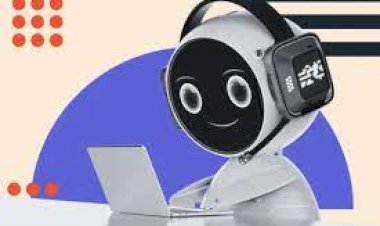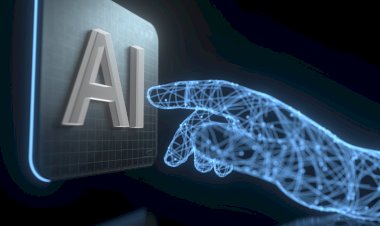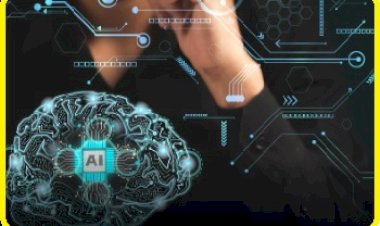The Future of AI: How Artificial Intelligence Will Change the World
Artificial intelligence will profoundly impact the future by enhancing efficiency, driving innovation across industries, and transforming how we work and live. Through automation, data analysis, and advanced decision-making capabilities, AI is poised to revolutionize society, offering both opportunities and challenges that require careful navigation and ethical consideration.
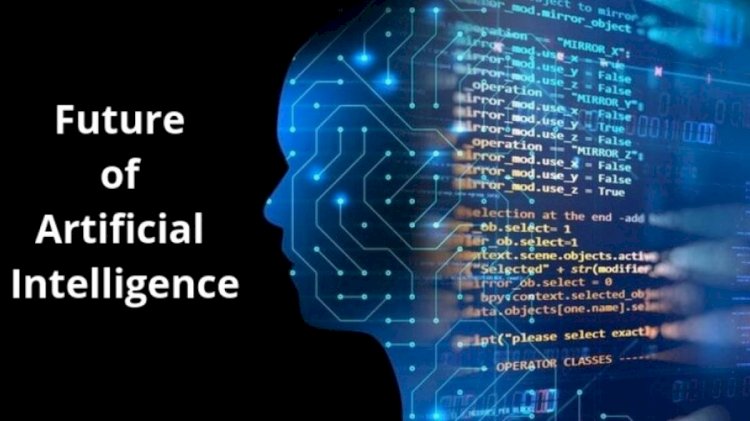
Evaluation of AI
Artificial Intelligence (AI) represents a groundbreaking technological frontier with vast potential to transform industries and society. Its ability to analyze massive datasets and make informed decisions autonomously is revolutionizing healthcare, finance, transportation, and beyond. AI's rapid evolution is driven by advances in machine learning and deep neural networks, enabling tasks previously thought impossible for machines. However, ethical concerns surrounding data privacy, algorithmic bias, and job displacement remain significant challenges. The future of AI hinges on responsible development and governance, ensuring its benefits are accessible and equitable for all.
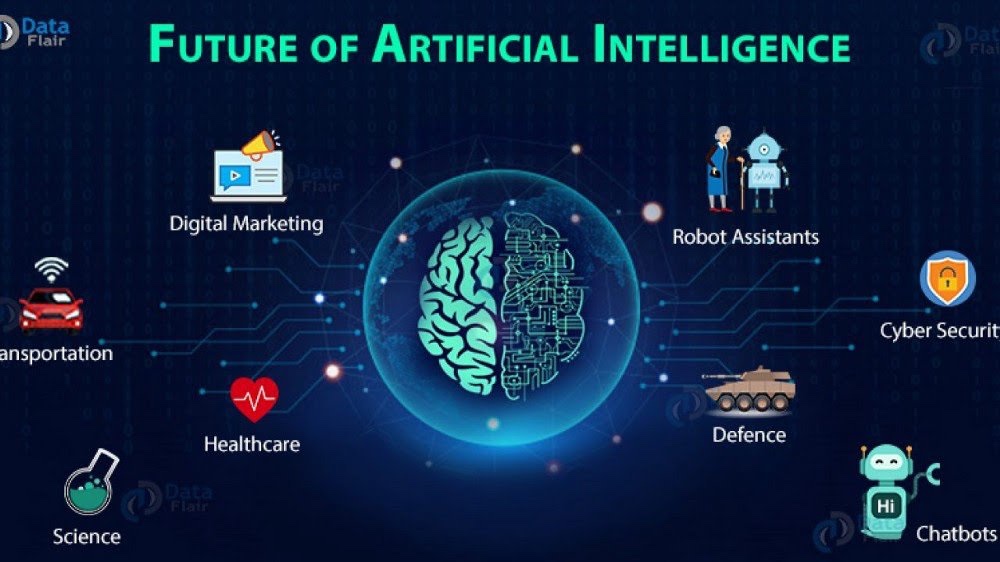
How AI will impact in Future
- Automation and Labor Shifts: AI technologies, including robotics and machine learning, will continue to automate routine tasks across various industries such as manufacturing, transportation, and customer service. While this will lead to job displacement in certain sectors, it will also create opportunities for new types of jobs requiring human oversight, creativity, and adaptability. The workforce will need to undergo reskilling and upskilling to remain relevant in this changing landscape.
- Enhanced Productivity and Efficiency: AI-driven automation will greatly enhance productivity and efficiency in businesses. Tasks that currently require substantial human effort and time, such as data analysis, decision-making, and repetitive processes, will be streamlined and accelerated by AI systems. This will lead to cost savings, faster innovation cycles, and improved customer experiences.
- Personalized Services and Experiences: AI will enable hyper-personalization across various services and products. By analyzing vast amounts of data about individual preferences, behaviors, and needs, AI algorithms will tailor recommendations, services, and experiences to suit each person uniquely. This could revolutionize healthcare, education, entertainment, and retail, among other sectors.
- Advancements in Healthcare: AI applications in healthcare will lead to more accurate diagnostics, personalized treatment plans, and improved patient outcomes. Machine learning algorithms can analyze medical imaging, genetic data, and patient records to assist doctors in making faster and more precise decisions. AI-driven drug discovery and development will also accelerate the pace of medical innovation.
- Ethical and Regulatory Challenges: As AI becomes more pervasive, ethical concerns around privacy, bias, transparency, and accountability will need to be addressed. Regulations will need to keep pace with technological advancements to ensure that AI is developed and deployed responsibly and equitably.
- Climate Change and Sustainability: AI can play a crucial role in addressing climate change and promoting sustainability. From optimizing energy usage to predicting environmental changes and managing natural resources, AI-powered solutions can contribute significantly to building a more sustainable future.
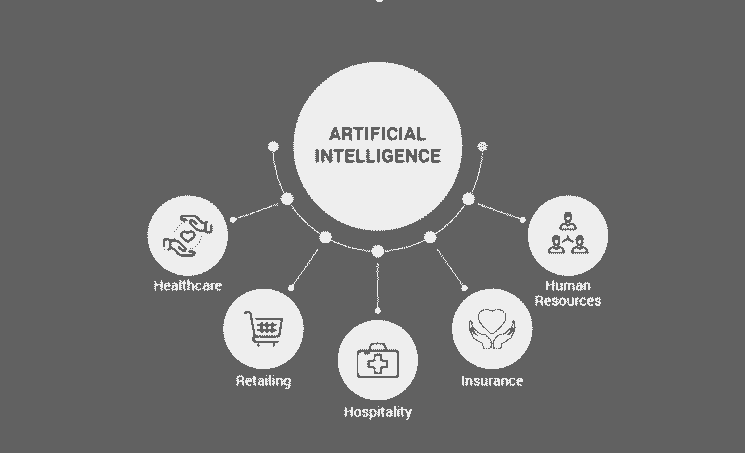
What Industries Will AI Impact the Most?
- Healthcare: AI is poised to revolutionize healthcare by improving diagnostics, personalized medicine, and patient care. AI algorithms can analyze medical imaging, genetic data, and patient records to assist in early disease detection and treatment planning. Virtual health assistants and telemedicine platforms also leverage AI to enhance healthcare accessibility and efficiency.
- Finance and Banking: AI is already playing a crucial role in finance through algorithmic trading, fraud detection, and risk assessment. AI-powered chatbots are being used for customer service, while machine learning algorithms analyze financial data to provide insights for investment decisions and portfolio management.
- Retail: AI is reshaping the retail industry with personalized recommendations, demand forecasting, and supply chain optimization. Chatbots and virtual shopping assistants use natural language processing (NLP) to enhance customer experiences. Computer vision technology facilitates cashier-less checkout and inventory management.
- Automotive and Transportation: AI is integral to the development of autonomous vehicles, enabling them to perceive and respond to their environments in real-time. AI also enhances logistics and fleet management by optimizing routes and schedules, reducing fuel consumption, and predicting maintenance needs.
- Manufacturing: AI-driven automation is transforming manufacturing processes through predictive maintenance, quality control, and supply chain optimization. Robotics and AI-powered systems are improving production efficiency, reducing waste, and enabling mass customization.
- Education: AI is being integrated into education through adaptive learning platforms that personalize educational content based on individual student needs and capabilities. AI tutors and virtual classrooms offer new avenues for remote and personalized learning.
- Media and Entertainment: AI is revolutionizing content creation and delivery in media and entertainment. Streaming platforms use AI to recommend content based on user preferences. AI-driven algorithms are also used in music composition, video editing, and virtual reality experiences.
- Telecommunications: AI is optimizing network management, improving customer service with chatbots, and enabling predictive maintenance of infrastructure. AI-powered voice assistants are enhancing user experiences and simplifying device interactions.
Risks and Dangers of AI:
- Job Displacement: AI and automation can replace human jobs in various industries, leading to unemployment and economic disruption. Certain tasks, especially routine or repetitive ones, can be efficiently handled by AI, impacting employment levels.
- Bias and Fairness: AI systems are prone to bias based on the data they are trained on. This can lead to discriminatory outcomes in areas such as hiring, lending, and criminal justice if not carefully managed.
- Privacy Concerns: AI relies heavily on data, often personal data, to function effectively. This raises concerns about privacy violations and data security breaches. Improper handling of data by AI systems can result in leaks, identity theft, or misuse.
- Lack of Transparency: Complex AI algorithms can be opaque and difficult to understand. This lack of transparency can lead to mistrust and uncertainty about how AI systems make decisions.
- Dependency and Reliability: Increasing reliance on AI systems may make society vulnerable to breakdowns or failures in critical infrastructure if these systems are not sufficiently reliable or secure.
- Technological Unemployment: AI advancements could lead to a significant shift in the job market, potentially leaving many workers unemployed or underemployed if there isn't adequate retraining and adaptation.
Conclusion:
In conclusion, artificial intelligence is poised to dramatically reshape our future. With its ability to analyze vast amounts of data quickly and accurately, AI will revolutionize industries ranging from healthcare and transportation to finance and education. This technology promises to streamline processes, improve decision-making, and create new opportunities for innovation. However, alongside these benefits come challenges such as ethical considerations and potential job displacement. As we move forward, embracing AI responsibly and ethically will be crucial in harnessing its transformative potential for the betterment of society. The future with AI holds great promise, but it also demands thoughtful and deliberate navigation to maximize its benefits while minimizing its risks.

 Yati Garg
Yati Garg 








